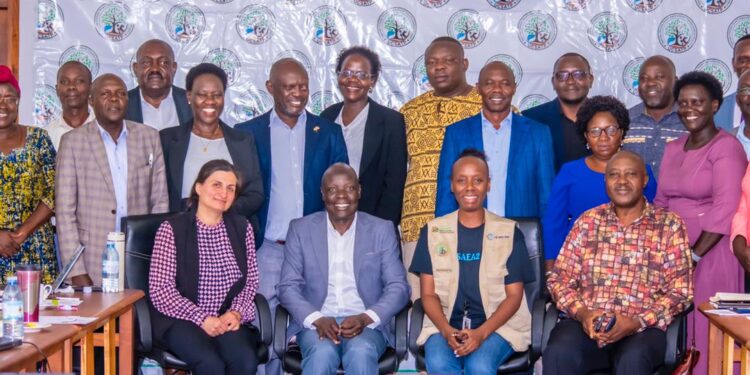Government has launched the Uganda Climate Smart Agricultural Transformation Project to empower farmers with resources and knowledge needed to adopt to climate-resilient agricultural practices. These will help enhance their ability to withstand the impacts of climate change and improve food security.
The project will further support small holder farmers enhance their productivity and resilience.
According to Eng Boniface Okannya, the project coordinator, the project will include among others matching grants to benefit farmer groups in 69 districts including seven refugee settlement camps, support mechanization, and promote climate-resilient agricultural practices.
“The project is designed to upgrade small-scale farmers to large-scale farmers, covering the entire value chain, including crops, livestock, fisheries, and beneficial insects like the black soldier fly,” Okannya explained.
He adeed, “The project will also focus on eliminating roadblocks to farmer mobility, improving post-harvest handling, and enhancing market access.”
Pushina Kunda Ngandwe Task Team Leader UCSTAP said the $350 million project will focus on 13 value chains across various sub-sectors of agriculture, including livestock, crops, fisheries, and beneficial insects.
“we are going to see the small holder farmers actually access much-needed inputs for their production purposes,” Kundanangwe said.
Stephen Tibeijuke Byantwale Commissioner Crop Protection at ministry of agriculture, said the project will also help seven refugee settlement camps grow their own food.
“Of late donor funding has decreased, the project therefore will enable refugees to grow their own food but also empower them economically through growing some crops like vegetables they can sell to communities around them,” said Mr Tibeijuka.
He explained that the project will also prioritize extension services, training, and retooling extension workers to support farmers in areas like farming knowledge, early warnings, and pest management.
“The project will also support the development of agro-meteorological systems to provide farmers with weather updates and early warnings,” he said.









